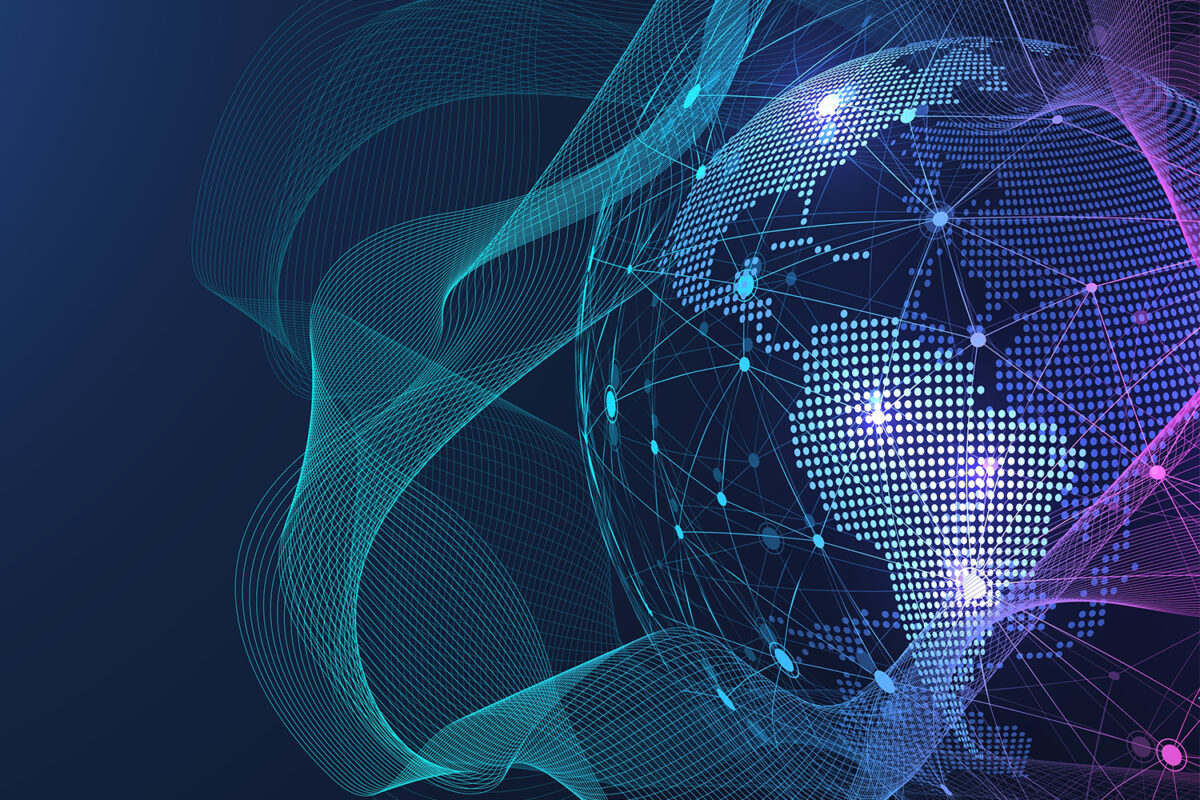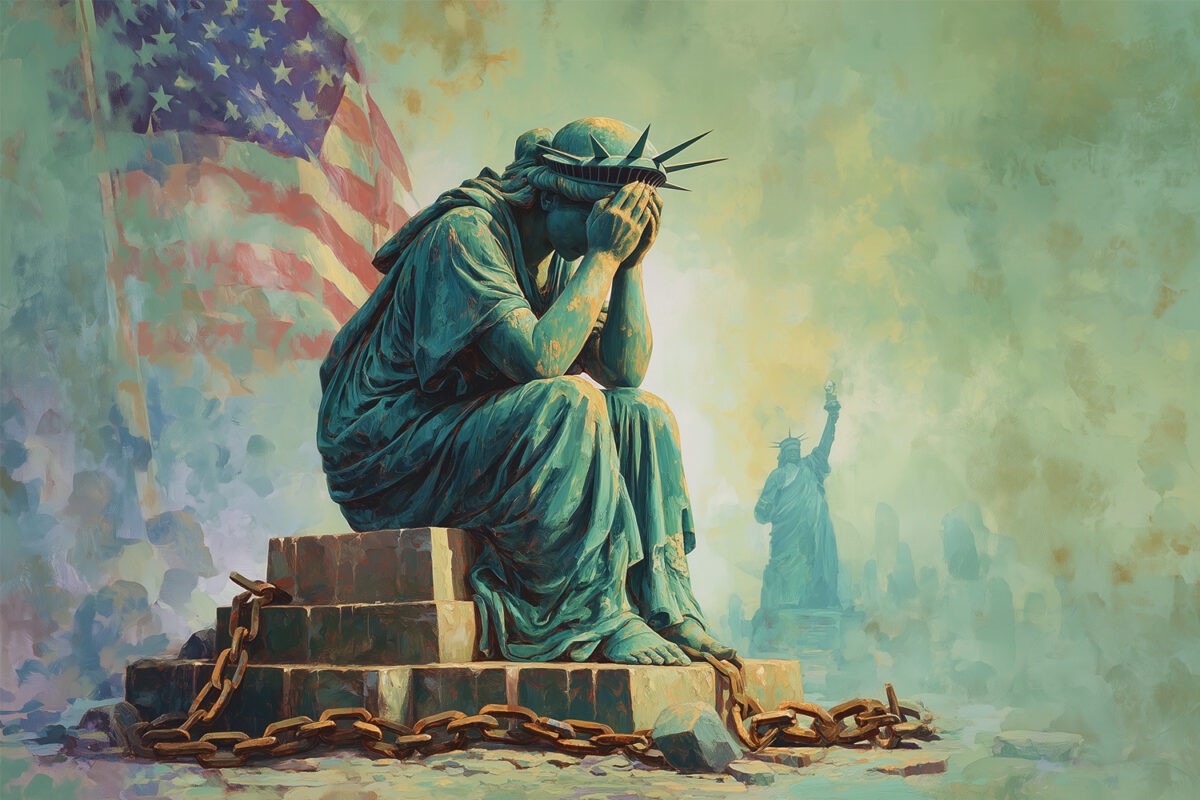2020 was dominated by the response to the COVID-19 pandemic and soon 2021 will be upon us. Our analysts at the Geopolity have come up with a list of issues they believe will be major events in 2021 and which they will be following. In no particular order what follows are a forecast of the key issues for 2021.
China vs USA – China is now officially the regional power on the ascent that is challenging the US position in South-East Asia. The prospect of China emerging as a continental power has now made it a target of the US. The neocon administration in the 2000s defined China as a competitor rather than the partner the Bill Clinton administration long called it throughout the 1990’s. But the Bush administration was marred by the Afghan and Iraq wars and was unable to focus on China and put little resources into containing China. The Obama administration put resources into containing China and moved 60% of the nation’s aircraft carriers in its pivot to Asia to the region to deal with the rise of China. The Trump administration took this a step further and began economic warfare with China. Despite a number of rounds of tariff increases and designating China a currency manipulator (and later removing it) on the substantive issues nothing has been resolved. For the USA, China is its number one priority.
The US President has his work cut out – Joe Biden will be inaugurated on 20th January 2021 and will be handed a myriad of challenges from the outgoing Trump administration. President Joe Biden will need to salvage Afghanistan as the 4th president to deal with the country. The US president will have to deal with an overstretched Empire which is a huge financial drain on the US economy. President Joe Biden will need to repair the damage to US alliances and partnerships that Trump believed needed destroying in order to save the US. President Joe Biden will need to also repair America’s damaged global image as the nation’s reputation has declined among key allies and partners. The US is now suffering from domestic political polarisation, which Donald Trump flamed rather than resolved. For the USA to be effective globally it needs a level of stability and unity domestically. The American system now faces its most significant challenge in recent history. The US president will also face a crisis of global leadership as President Trump replaced values and ideology promotion with the mantra of America first and transactional relations. President Joe Biden will have to come up with something if it wants to regain America’s global leadership.
Arab Spring 2.0 – The end of 2020 is the decade anniversary of the Arab Spring. Syria was the last remaining Arab Spring nation that was attempting to overthrow its long-term regime. But nearly a decade from the first wave of uprisings it would appear the second wave is now beginning. Sudan, Algeria, Egypt, Iraq, Lebanon and Iran all experienced uprisings and their rulers used the COVID-19 lockdowns to take the steam out of them. Many of the underlying issues were never resolved and in a number of countries things are far worse today than a decade ago. In Algeria and Sudan there has been an open call for the military regimes to leave politics and in other nations the demand for an overhaul of the political system is still being called for. The Sykes-Picot nation states established a century ago are now facing their most significant challenges.
The Abandonment of Palestine – In 1979 Egypt formally recognised the Zionist entity in a formal treaty. It would take over another decade for Jordan to do the same, it then took a quarter of a century for the next nations to recognise Israel and establish normal relations. Under pressure from the US a number of Gulf states entered into normalisation agreements with the Zionist entity in 2020, with others, also likely to go public in 2021. The Palestinian people appear to now be officially abandoned after decades of support from nations who used their struggle for their own legitimacy. But the rulers in the Muslim world do this at odds with opinion across the Muslim world. Saudi Arabia continues to deny normalisation talks due to the public reaction and in 2021 it will be key to see how the Muslims globally respond against rulers who go against their sentiments and support for the Palestinian cause.
Iran Elections – Iranian presidential elections are due to take place in June 2021. When the USA quit the nuclear deal in 2018 and imposed devastating sanctions the faction that believed Iran could do business with the USA lost popularity. The 2015 Joint Comprehensive Plan of Action (JCPOA), agreed between President Rouhani and the USA, UK, France, China, Russia and Germany promised to be a path to international acceptance. Whilst Iran has generally still stuck to the deal many in the Iranian leadership believe they cannot trust American deals and this is leading to a surge in popularity for conservative candidates. The Iranian political system is a complex labyrinth that spreads power between different organs. But the Iranian system established by the clerics is struggling as many in Iran believe the clerics have run the country into the ground; many in Iran believe change is now needed. Demonstrations were already taking place at the end of 2019 and the murder of IRGC commander Qasim Suleimani and subsequent denials by the regime of accidently shooting down a civilian airliner only added to their woes. The context the elections will be taking place in is important as it takes place with little confidence in the clerical political leadership.
China’s Hong Kong problem – 2021 will be a critical year for China as it attempts to show it is a unified nation and has all its territories under control. The COVID-19 pandemic allowed China’s leadership to clamp down on Hong Kong protests and in June 2020 it passed a law that ended the one nation, two systems political system. The Chinese leadership believes it has taken back control of the financial hub and used the COVID-19 pandemic to restrict protests. But Hong Kongers are now reaching out to supporters across the world and as China uses the new national security law to interfere in the Islands legal system, 2021 will be an important year for Hong Kongers to remain separate from mainland China and for the Chinese leadership to show its writ is paramount.
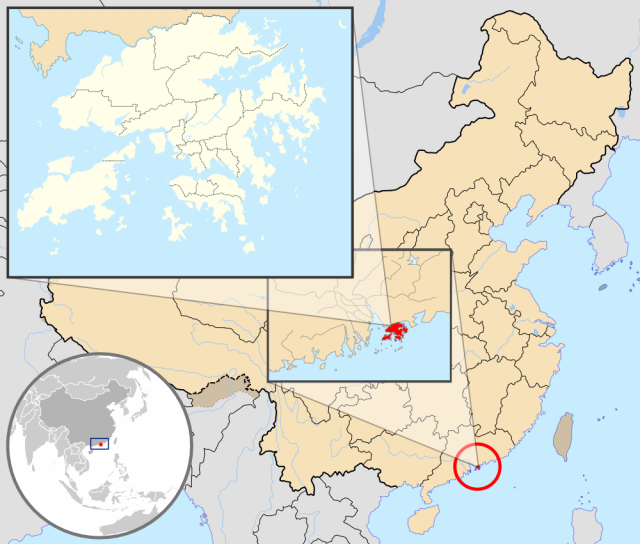
The battle for the microchip – Whilst China is the world’s factory, one area it has been trying to excel in is the microchip and it’s the area the US has been most aggressive to stop China excelling in. Microprocessor chips power smart phones, PC’s, servers and the cloud and their speed are critical to most everyday tasks. Whilst the US and its allies – Taiwan and South Korea dominate this market the US has been trying to limit China’s capabilities by imposing restrictions and many nations are still deciding whether to buckle under US pressure to abandon Chinese chips or go with Beijing’s cheaper and growing microchip industry. 2021 will see the new US president outline his China plan, for China this tech industry is key if it wants to be a power in the future.
Global inequality to get worse – COVID-19 not only led to major job losses, but it also accelerated global wealth inequality. Even before the COVID-19 pandemic many saw national governments working primarily for the interests of the top 1%. When England’s top football striker must beg the government to give food vouchers to children in the world’s 5th richest economy, something has seriously gone wrong. History is littered with examples of elites preferring their own short-term benefits over the rest and this inequality lies at the heart of nearly every popular revolution in mankind. Whilst global wealth inequality was getting worse, the pandemic has exacerbated this problem. Push back at government policies and lack of welfare for the majority will be key signs to watch for in 2021.
Global power shifting to the East? – With the rise of China many have for long considered global power ebbing away from the west who dominated the globe for the best part of 500 years to the Far East. Whilst economic power was already moving East the COVID-19 pandemic has seen a growing admiration for the East Asian response. The response by countries such as China, Singapore, South Korea and Taiwan stands in contrast to those of the US, Britain, France and Spain. The lower death rates in the Far East and the contrasting responses has seen many praise their better governance around pandemics. As the USA walks away from global institutions its now China who is presenting itself as a reliable multilateral partner. In 2021 it remains to be seen if the West can reclaim its soft power as many look to the Far East in admiration.
The end of populism? – Numerous populists in recent times saw success at the polls as many lost faith in mainstream politicians. Many turned to populist personalities in the hope they would be different. In the USA, Ukraine, Hungary, Brazil, Pakistan and a slew of other nations populist leaders found success. The COVID-19 outbreak was the first real test of such leaders delivering on their rhetoric and the results are not promising. USA president Donald Trump dismissed the virus and promoted quick cures. Imran Khan of Pakistan changed his mind on a national lockdown on a near daily basis, the army eventually intervened and imposed a national lockdown. Brazil’s president, Jair Bolsonaro promoted bogus cures. Many other leaders resorted to fearmongering and scapegoating; Narendra Modi of India blamed his Muslim population for the pandemic. Populist leaders failed to deal with the COVID pandemic and as national economies struggle to generate wealth its likely populist rhetoric will no longer assuage the public mood in 2021.
German elections – Germany goes to the polls in September 2021 with Angela Merkel, the chancellor of Germany since 2005 exiting. She agreed to step down as leader of the Christian Democratic Union (CDU) in 2018 when they suffered defeats in regional elections. Her party has suffered in recent years as populist leaders did well at polls and Germany’s far right managed to win seats in the German parliament. Merkel led Germany during the 2008 global economic crisis and was able to shape the EU around German interests. But her party has struggled to elect a new leader. Kramp-Karrenbauer won the leadership and then resigned after a series of gaffes, raised doubts about her viability as a candidate for chancellor. None of the other candidates Kramp-Karrenbauer defeated have been able to mobilise a support base, even after the leadership elections were moved to the end of 2020 due to COVID-19. Germany is a key nation in the EU, the leader of Germany makes this election even more important.
The battle for space – 2021 will see a raft of Space missions as a new space race take shape. NASA will try to orbit an asteroid the size of a stadium and orbit the moon with European allies. China also plans to launch parts for its space station in 2021. India also plans to put astronauts into space. China has for long been trying to build its anti-satellite capabilities as well as creating the symbolism that comes with being a space power. In the 20th century space was the final frontier, it’s now becoming the new front in the geopolitical struggle between the USA and China.
New Britannia – Britain has left the European Union and spent most of 2020 debating what its relationship will be with the EU on the edge of the European continent. Whilst UK leaders blamed the EU for stalling talks the UK team dragged their feet on the smallest issues such as fishing rights. A deal was finally reached which focused on goods and quotas and tariffs on them. But it left 80% of the British economy, that is based on services out of the discussions. In 2021 and beyond Britain will need to forge its way in a new world, without the EU and with the repercussions of the COVID pandemic and its economic effects. Whilst new trade deals with Japan and Canada have been trumpeted as new era’s, on closer inspection they are deals that will make little difference. But cracks are already emerging, with Scotland looking to push through the separation from the UK. Whilst a referendum is not likely in 2021, how the government in London deals with this growing movement will be key in 2021
The largest vaccination program in history – 2021 will see the largest vaccination program in history take shape but the politics around distribution and government competency is all at stake. Governments across the world struggled to deal with the COVID-19 pandemic and then resorted to economic crushing lockdowns. Governments across the world have promoted the arrival of new vaccines, in record time. Economic nationalism is already rife and “vaccine nationalism” will be a key feature of 2021. With the deaths from COVID-19 still increasing, governments will find an unforgiving public if there are delays in vaccine distribution. The scepticism around vaccines will also be another major problem.
Trouble on russia’s periphery – Russia is facing significant problems on its frontiers. In 2020 Russia faced significant challenges in the nations on her borders and former Soviet Republics as national election results led many to take to the streets reminiscent of the Colour revolutions of the 2000s. In Belarus and Kyrgyzstan electoral results for long term leaders were challenged by the people leading to the fall of governments. Then in October 2020 in the Caucasus clashes broke out between Azerbaijan and Armenia over Nagorno-Karabakh, a disputed region governed by ethnic Armenians inside Azerbaijan. Azerbaijan scored a stunning victory against Armenia with significant Turkish help, military equipment and guidance. Belarus, Kyrgyzstan, Armenia, Ukraine and the Caucuses are geopolitical imperatives for Russia and these events in 2021 threaten the Russian position as they allow western interference on its borders.
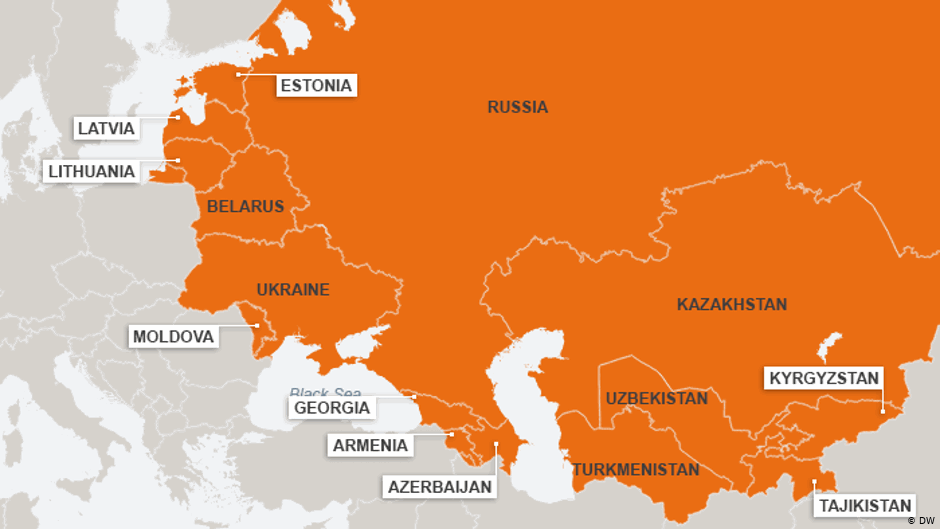
Will Europe lose North Africa? – In 2020 Mali and Libya both appear to have moved into the US orbit. In Libya, the US now controls both sides of the battle taking place to control the country. The European established government in Tripoli was saved from being conquered by the US asset Khalifa Hafter, when Turkey entered into the conflict and sided with the sitting government in Tripoli. Hafter led the opposition against the government but failed for years to prevail. However, Erdogan confirmed Turkey’s actions were agreed with Trump in a phone call. Libya has the largest oil reserves in Africa and successive EU reports have identified Libya as an alternative source of energy for the EU over Russia. This is all now in jeopardy as the US is on the verge of removing Europe from Libya. This then puts Algeria, Tunisia and Morocco under threat which has for long been European proxies. What also strengthened the USA’s position in North Africa in 2020 was the successful coup in Mali in 2020 which removed the Pro-French regime by US trained soldiers.
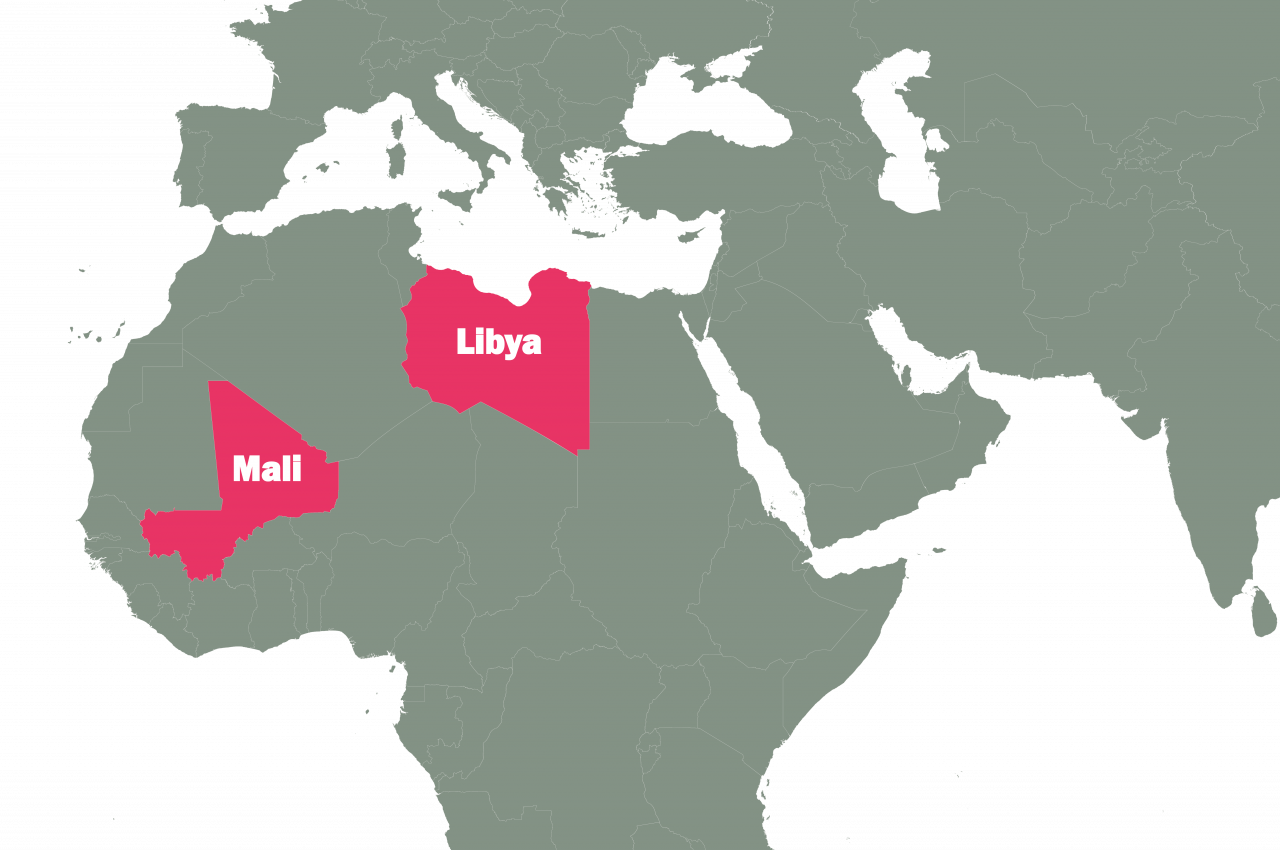
Imran Khan’s innings coming to an end? – Just two years into his term, former cricketer turned politician, Imran Khan faces a tsunami of problems. After grand promises of Naya (new) Pakistan, the establishment of the Medina model and a welfare state, the PTI project is now on life support as once die hard supporters have had enough of grand promises, fiery speeches and the constant shifting of blame on others. The Prime Minister is under criticism due to his government’s failure to make progress on the economic and political fronts as well as decisively confront the COVID-19 pandemic. The opposition has coalesced into the Pakistan Democratic Movement (PDM) using the same blueprint Imran Khan utilised to oust premier Nawaz Sharif from power. What makes this situation even more critical is due to the support Khan received from the real rulers of Pakistan, the military leadership. Pakistan sits in a critical region, in between China, the US, central Asia and Afghanistan, 2021 will be a critical year for it.


